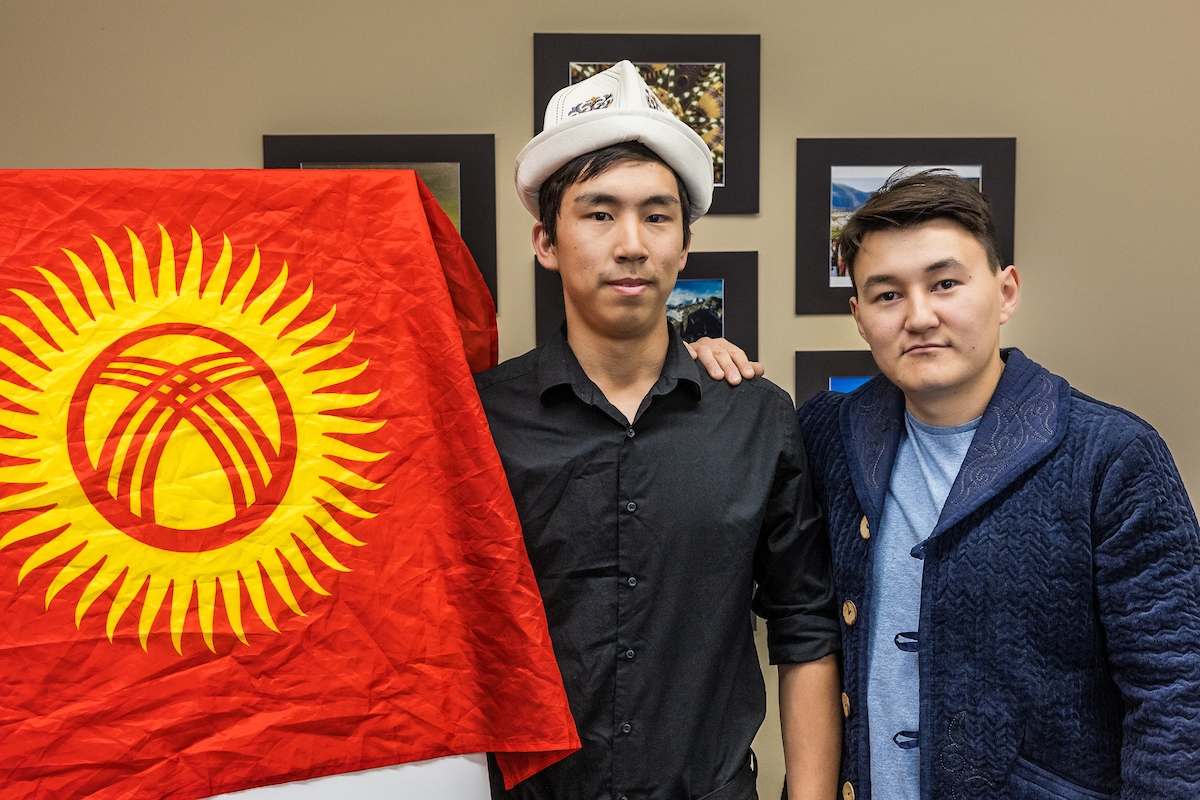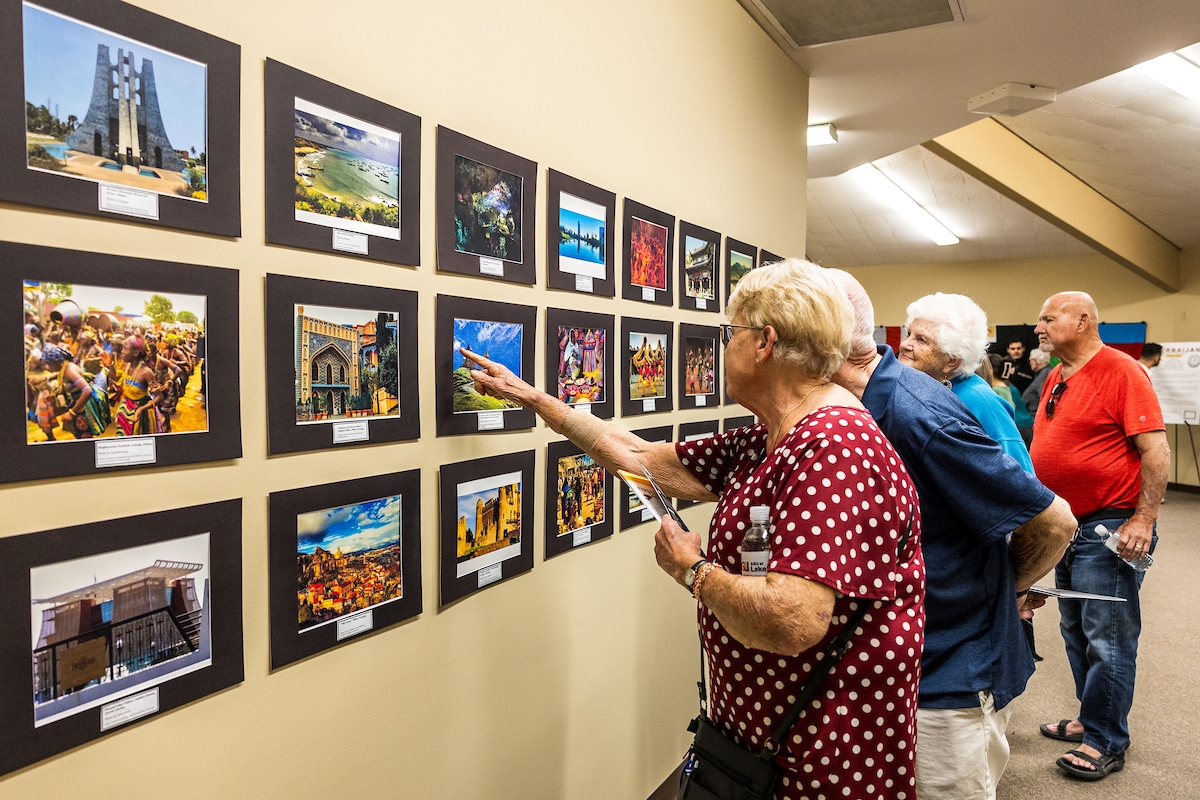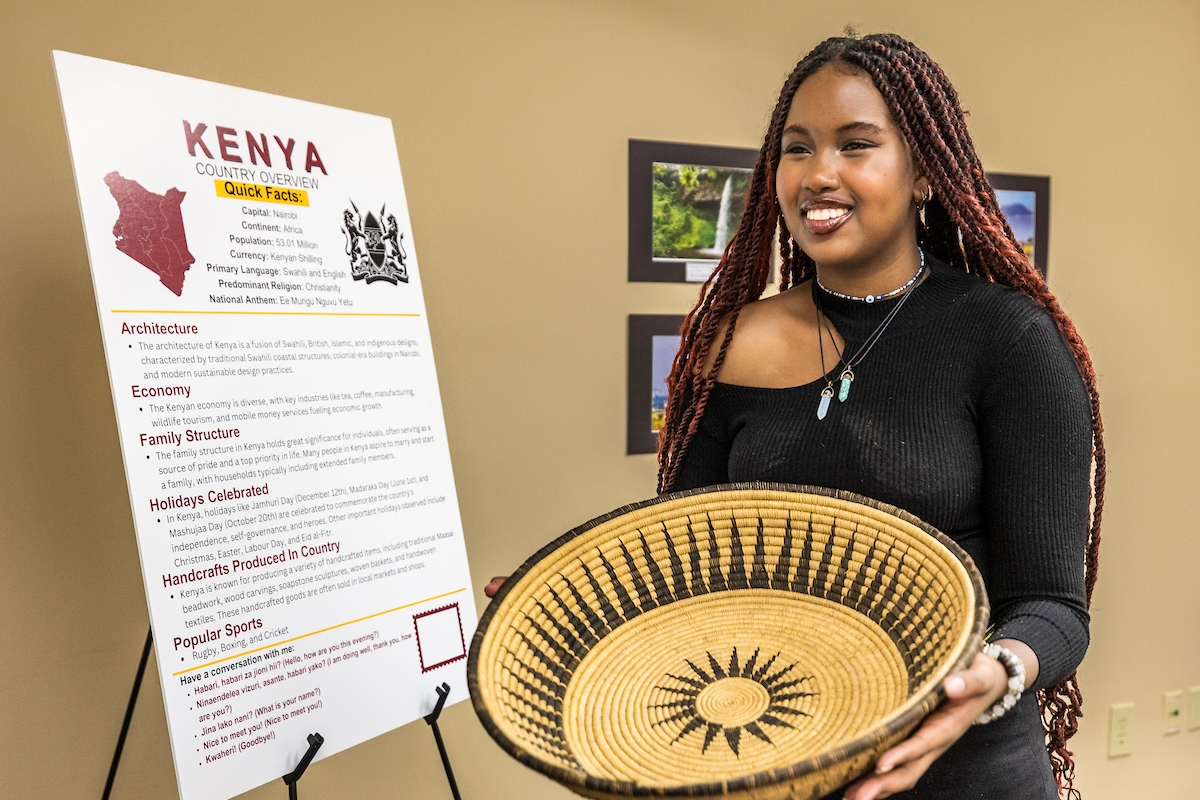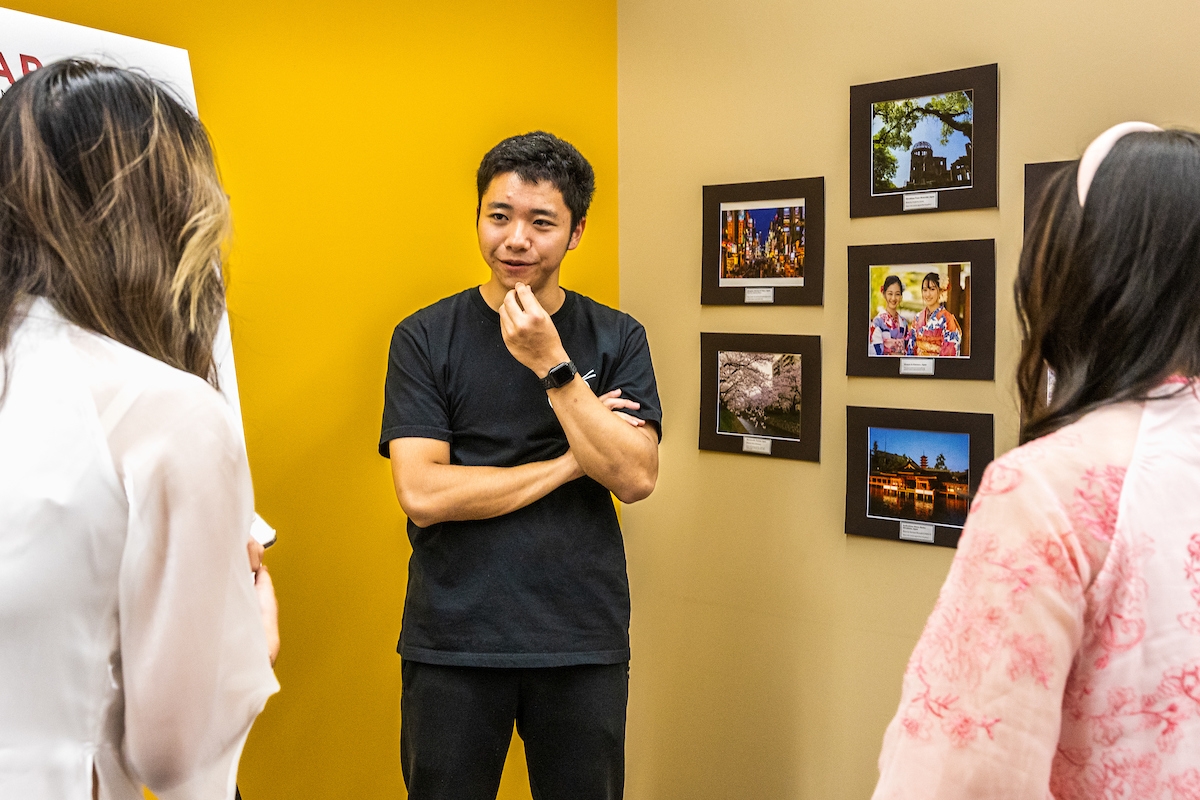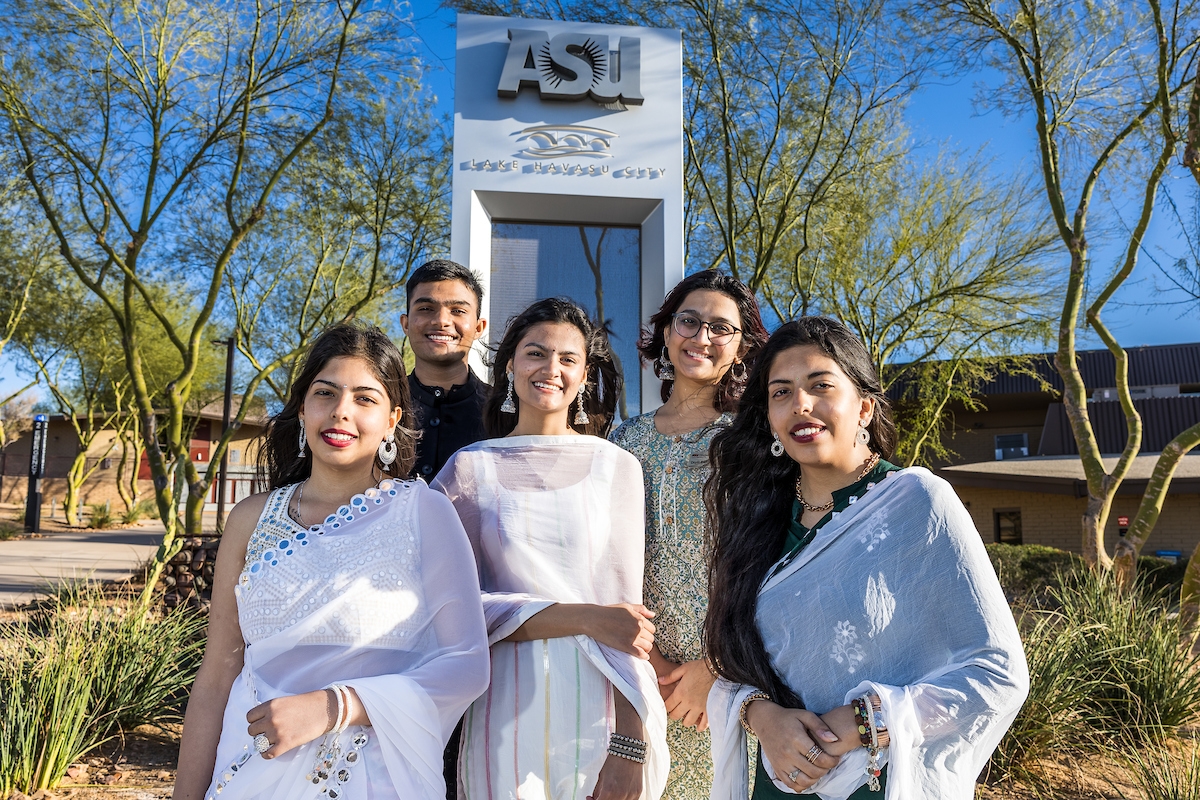ASU: Around the World in 90 Minutes: International Students in Lake Havasu Offer Public a Taste of Home
The ultimate expression of hospitality is to invite someone into your home.
When you’re visiting a foreign land, usually you’re the one being invited. However, this March, international students at ASU at Lake Havasu were the ones inviting locals into their world.
“Bridge to the World” was an open house forum that gave international students the opportunity to showcase an overview of their country’s cultures, traditions, customs and practices. It was also a chance to demonstrate the global reach of the ASU location, which boasts an international population of about 45% of the student body.
“The idea behind creating the exhibit was to bridge the gap between our students and the local community,” said Rebecca Lidstrom, a kinesiology lecturer in the College of Health Solutions, who spent several months coordinating the event. “ASU Lake Havasu is that bridge to the rest of the world for our community. Our campus, albeit small, has over 27 countries that our students call home. This diversity creates a vibrant tapestry and unique experience that ASU Lake Havasu offers to students. It is that experience we want to highlight.”
More than 150 members of the Lake Havasu City community used the 90-minute event as a “passport” to learn more about the countries represented and experience life from the perspective of students from places such as Azerbaijan, China, India, Japan, Kazakhstan, Kenya, Nigeria, Pakistan and Vietnam.
They learned through hundreds of photos, informational poster boards, clothes, flags, food and international students, who fielded questions and spoke in their native language.
One of the many in attendance was educator and longtime Lake Havasu City resident Sandy Breece.
“Our international students come here to learn about us, but more importantly, we get an opportunity to learn about them,” said Breece, who has more than 40 years in the field of education, public and private, as teacher, administrator and educational entrepreneur. “Tonight, they get to show us who they are, and it’s a win-win for everyone.”
Rabiya Gupta, who dressed in a traditional white Indian saree and sported bracelets and dangling earrings, said she came to the open house to represent her country in a positive light.
“There is a misconception that India is a third world or impoverished country, but I want to tell people it’s a vivid place and offers many different things culturally,” said Gupta, a first-year dual biology and nursing student and one of 11 Havasu students from India. “We are a very diverse country and the dialect there changes every five miles. Indian hospitality is awesome and if you came by my house, everyone would be hospitable to you.”
Gupta said hospitality in Lake Havasu City isn’t so bad, either.
“This community here is very close-knit,” she said. “Everybody wants to understand you, everybody wants to accommodate you. They are so welcoming, which is nice.”
Eldos Orozobekov, who hails from Kyrgyzastan in Asia, said he wants Americans to know where his country is located and that it’s a nature lover’s paradise.
“The nature there is so amazing,” said Orozobekov, a fourth-year communications major. “The country is about 75% mountains. You can swim, hike, ski, and it’s the No. 1 spot for tourists in Central Asia.”
He added there’s a great benefit to studying at ASU at Lake Havasu
“Americans and international students hang out together and we learn from each other,” Orozobekov said. “This diversity of ideas and perspectives lead to a great result.”
Amy Murugi, a second-year psychology student from Nairobi, said she wanted people to know more about Kenya and the values of her country.
“We have very beautiful landscapes, including safari country, and the weather is good year-round. We don’t have seasons,” she said.
Murugi said Kenyans hold family in high esteem.
“Family is the source of our pride and priorities,” she said. “Family is important, and I miss having that support system here. But the people in Lake Havasu are friendly. This is a real community and that made my adjustment to living in the United States much easier.”
Mihal Lena, from Greece, also made a plea for his fellow countrymen, as well as the cuisine.
“There’s a humble charm to the people of Greece because they’re happy with what they have and don’t need more,” said Lena, a second-year business administration major who grew up in a small village outside of Athens. “We have good values and clear thinking. We think about every move we make from a young age and always try to take the right path.”
Lena also likes the food from his home country and misses it almost as much as he does his family.
“The food is amazing,” Lena said. “Very clean and good for you.”
Taisei Tomonari from Japan said he also misses food from home but has found a restaurant that satisfies his cravings.
“In Japan, the sushi is cheaper and they have more variety, but I found a good place here,” said Tomonari, a second-year sociology major. “This is a great place for a foreign student.”
Tomorani said he wants Americans to know how people in Japan communicate and relate with one another.
“People here smile, make eye contact and say hello to each other,” Tomorani said. “We don’t do that in Japan. The friendliness here is amazing and much more social. I’m willing to communicate more with people here.”
Tomanari said he’s considering becoming an American resident after graduation.
“Of course, I am Japanese, and I feel Japanese,” Tomanari said. “But at the same time, I feel American because this country is for everybody.”


